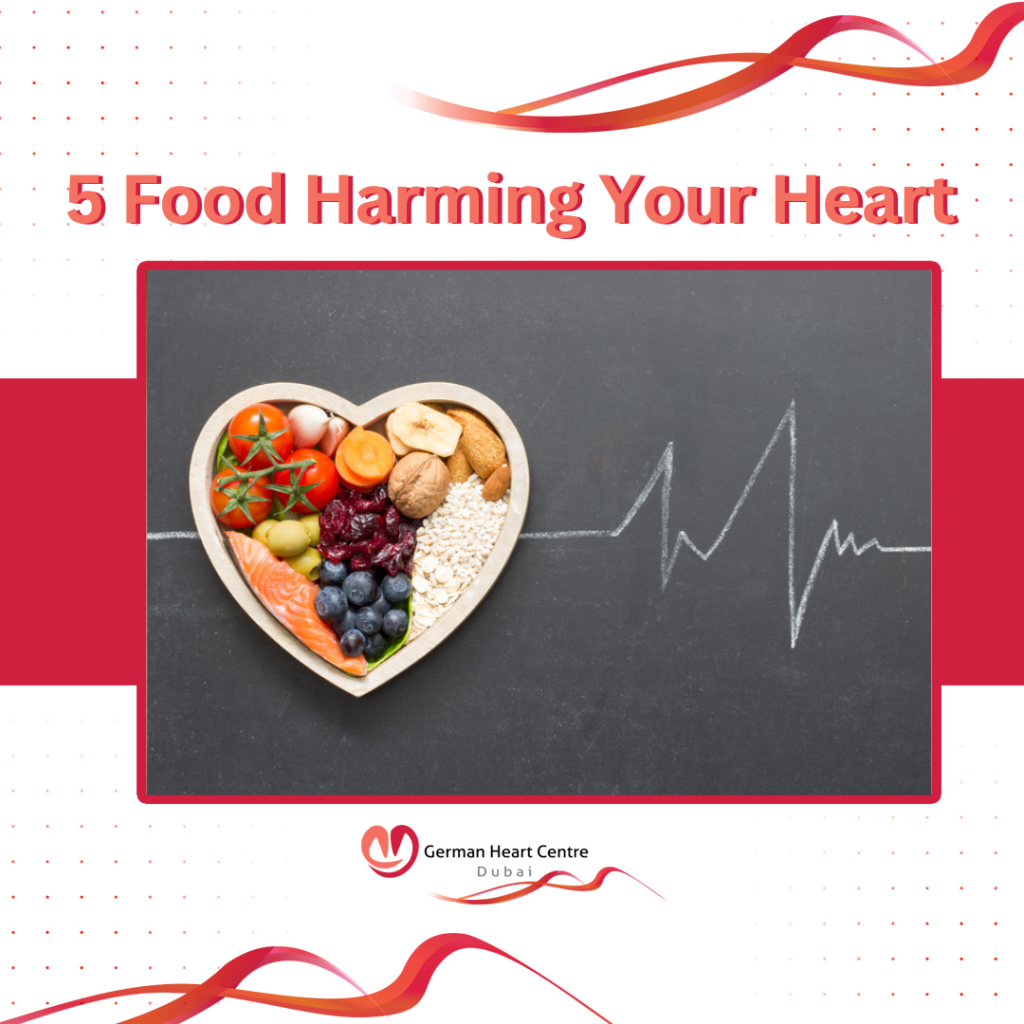Nutrition that May Harm Your Heart
If eating a heart-healthy diet is good for your heart, you might wonder if taking vitamins and other nutritional supplements that are touted as heart-healthy further protects you from cardiovascular disease.
1- Salt, sugar, and fat High salt, sugar, saturated fat, and refined carbohydrate intake over time increases your risk of having a heart attack or stroke. You should avoid regularly consuming them if you have cardiac concerns. However, it is better to concentrate on your total diet than to fixate on any one unhealthy dish. If you primarily consume heart-healthy fruits and veggies, whole grains, lean protein, and low-fat dairy, you can still have these foods.
2- Soda Small amounts of added sugar are not hazardous, but a can of soda has more added sugar than is healthy for an entire day, according to scientists. Drinkers of soda are more prone to weight gain, obesity, type 2 diabetes, high blood pressure, and heart disease. And although the science surrounding diet drinks is still hazy, some study has connected them to weight gain and strokes. Water that is simple, carbonated, or flavorless is your best option.
3- Finished Meats The worst foods for your heart include hot dogs, sausage, salami, and lunchmeat. They are heavily salted, and the majority of them contain a lot of saturated fat. Turkey is healthier than salami when it comes to deli meats because it does not contain saturated fat. However, it still contains a decent amount of salt, making it less heart-healthy than freshly sliced turkey breast.
4- Butter Butter has a lot of saturated fat, which can increase your bad cholesterol and increase your risk of developing heart disease. Olive oil or spreads made from vegetable oil, which include heart-healthy mono- and polyunsaturated fats, are preferable to butter. An even better spread is one that contains stanol if you have excessive cholesterol. Your LDL cholesterol levels can be lowered with consistent use.
5- Canned Soup Increasing your intake of vegetables, protein, and fiber can be simple with soup. However, beware of unhealthy components. Many canned soups are heavy in sodium, which raises blood pressure and increases the risk of heart attacks, strokes, and heart failure. Additionally, any cream-based soup contains harmful saturated fat. Making your own soup from home with a low-sodium broth is the best option. Check the label for the least salty and fatty soups if you do decide to purchase prepared soup.
No one understands the heart better than the team at German Heart Centre! Should you have any concerns or questions about the topic of heart health, we are just a phone call away. Get in touch to book your next consultation!
Disclaimer: This content including advice provides generic information only. It is in no way a substitute for a qualified medical opinion. Always consult a specialist or your own doctor for more information on the topic.

